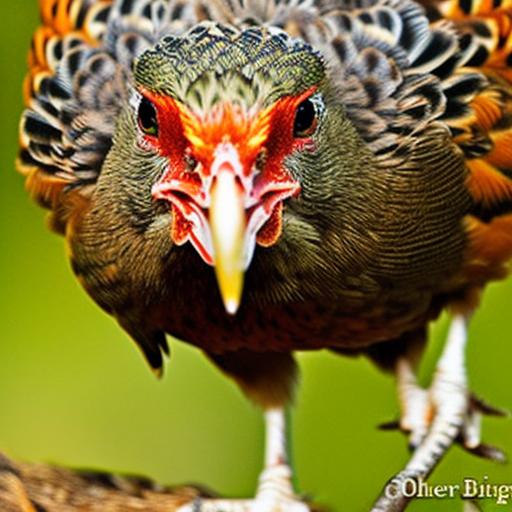Chickens are a popular addition to many properties, whether it be for their eggs, meat, or simply as pets. However, it is important to understand the risks that chickens can pose to your property. From health risks to property damage and noise pollution, there are several factors to consider when keeping chickens on your property. By understanding these risks and taking appropriate measures, you can ensure a harmonious coexistence with your feathered friends.
Key Takeaways
- Chickens can carry diseases that can be harmful to humans, so it’s important to take precautions when keeping them on your property.
- Common chicken behaviors to watch out for include scratching up gardens, damaging property, and making noise.
- Proper fencing and enclosures are essential for keeping chickens contained and preventing them from causing damage.
- Natural deterrents for chickens include planting certain herbs and using predator decoys.
- Scare tactics, such as loud noises and flashing lights, can also be effective in keeping chickens away.
Understanding the Risks of Chickens on Your Property
A. Health risks: Chickens can carry various diseases and parasites that can be transmitted to humans. Salmonella is a common bacteria found in chicken feces, which can cause food poisoning if proper hygiene practices are not followed. In addition, chickens can also carry mites and lice, which can infest your property and cause discomfort for both humans and other animals.
B. Property damage: Chickens have a natural instinct to scratch and peck at the ground in search of food. This behavior can lead to damage to lawns, gardens, and flower beds. They may also dig holes in the ground, which can be hazardous and unsightly. Additionally, chickens may damage fences, structures, and other property features with their pecking and scratching.
C. Noise pollution: Chickens are known for their loud and frequent vocalizations, especially when they are disturbed or feel threatened. This can be a nuisance for neighbors and may even violate local noise ordinances. The constant noise can also disrupt your peace and quiet, making it difficult to relax or concentrate.
Common Chicken Behaviors to Watch Out For
A. Pecking: Chickens have a natural instinct to peck at objects in their environment. While this behavior is normal for them, it can cause damage to plants, furniture, and other items on your property. They may also peck at each other, leading to injuries and potential cannibalism if not properly managed.
B. Scratching: Chickens use their feet to scratch at the ground in search of food, insects, and other small creatures. This behavior can lead to damage to lawns, gardens, and flower beds. They may also scratch at fences, structures, and other property features, causing further damage.
C. Roosting: Chickens have a natural instinct to roost, or perch, on elevated surfaces during the night. This can lead to them perching on fences, trees, or even your house. Not only can this cause damage to these structures, but it can also create a mess with droppings and feathers.
The Importance of Proper Fencing and Enclosures
| Metrics | Importance |
|---|---|
| Prevents unauthorized access | Protects property and people from theft, vandalism, and trespassing |
| Ensures safety | Keeps children and pets from wandering off and getting lost or injured |
| Defines boundaries | Clearly marks property lines and prevents disputes with neighbors |
| Enhances privacy | Blocks unwanted views and noise from outside |
| Increases property value | Attracts potential buyers and adds aesthetic appeal to the property |
A. Types of fencing and enclosures: To prevent chickens from causing damage to your property, it is important to have proper fencing and enclosures in place. Chicken wire or hardware cloth is commonly used to create a barrier around the perimeter of the property or specific areas where chickens are allowed to roam. Additionally, chicken coops or runs can provide a safe and secure space for chickens to live.
B. Benefits of proper fencing and enclosures: Proper fencing and enclosures can help contain chickens within designated areas, preventing them from causing damage to other parts of your property. It also helps keep predators out, reducing the risk of harm to your chickens. Additionally, having a designated space for chickens can make it easier to manage their behavior and maintain cleanliness.
Natural Deterrents for Chickens
A. Plants that deter chickens: There are several plants that chickens tend to avoid due to their taste or smell. Some examples include marigolds, lavender, rosemary, and mint. Planting these around your property or in areas where you want to keep chickens away can help deter them from causing damage.
B. Other natural deterrents: In addition to plants, there are other natural deterrents that can be used to keep chickens away. For example, scattering citrus peels or coffee grounds around your property can help deter chickens due to their strong smell. You can also try using reflective surfaces, such as CDs or aluminum foil, to create a visual deterrent.
Using Scare Tactics to Keep Chickens Away

A. Visual scare tactics: Visual scare tactics can be effective in deterring chickens from certain areas. This can include placing scarecrows, fake predators, or even balloons with scary faces in areas where you want to keep chickens away. The movement and presence of these objects can startle chickens and discourage them from approaching.
B. Auditory scare tactics: Chickens are sensitive to loud and sudden noises. Using auditory scare tactics, such as wind chimes, bells, or even a radio playing at a high volume, can help deter chickens from certain areas. The unexpected noise can startle them and make them feel uncomfortable.
Chemical Repellents for Chickens
A. Types of chemical repellents: There are various chemical repellents available on the market that are specifically designed to deter chickens. These repellents often contain ingredients that have a strong smell or taste that chickens find unpleasant. Some examples include garlic oil, peppermint oil, and capsaicin.
B. Safety precautions: When using chemical repellents, it is important to follow the instructions provided by the manufacturer and take necessary safety precautions. Some repellents may be harmful to humans, pets, or other wildlife if ingested or applied incorrectly. It is also important to consider the potential environmental impact of using chemical repellents and choose products that are safe for the surrounding ecosystem.
Creating a Distraction with Food and Water Sources
A. Types of food and water sources: Providing chickens with a designated area for food and water can help distract them from causing damage elsewhere on your property. This can be done by setting up a feeding station or using feeders and waterers that are specifically designed for chickens. By providing them with a readily available food and water source, they are less likely to search for these resources in other areas.
B. Benefits of creating a distraction: Creating a distraction with food and water sources can help redirect the chickens’ attention away from areas where they may cause damage. It also helps ensure that they are getting the necessary nutrition and hydration, which can contribute to their overall health and well-being.
The Benefits of Owning a Dog or Cat as a Chicken Deterrent
A. Types of dogs and cats that deter chickens: Certain breeds of dogs and cats have a natural instinct to chase or hunt small animals, including chickens. Breeds such as Border Collies, Australian Shepherds, and Jack Russell Terriers are known for their herding instincts and may be effective in deterring chickens. Similarly, certain breeds of cats, such as Maine Coons or Bengals, have a strong prey drive and may deter chickens from entering your property.
B. Benefits of owning a dog or cat: Owning a dog or cat as a chicken deterrent can provide several benefits. Not only can they help keep chickens away from certain areas, but they can also provide companionship and security for your property. Dogs, in particular, can act as a deterrent for other potential pests or intruders, providing an added layer of protection.
Seeking Professional Help for Persistent Chicken Problems
A. When to seek professional help: If you have tried various methods to deter chickens from your property but are still experiencing persistent problems, it may be time to seek professional help. This is especially important if the chickens are causing significant damage or posing a threat to your health and safety.
B. Types of professionals to contact: There are various professionals who specialize in dealing with pest animals, including chickens. This can include wildlife control experts, pest control companies, or even local agricultural extension offices. These professionals can assess the situation, provide advice, and implement effective strategies to deter chickens from your property.
Maintaining a Clean and Tidy Property to Deter Chickens
A. Importance of cleanliness: Maintaining a clean and tidy property is essential in deterring chickens. Chickens are attracted to areas with food scraps, garbage, or other sources of potential food. By keeping your property clean and free of these attractants, you can reduce the likelihood of chickens being drawn to your property.
B. Tips for maintaining a clean and tidy property: Some tips for maintaining a clean and tidy property include properly disposing of food waste, securing garbage cans with tight-fitting lids, and regularly cleaning up any spilled or leftover food. It is also important to keep outdoor areas free of debris or clutter that may provide hiding spots or nesting areas for chickens.
In conclusion, understanding the risks that chickens can pose to your property is crucial in maintaining a harmonious coexistence. From health risks to property damage and noise pollution, there are several factors to consider when keeping chickens on your property. By implementing appropriate measures such as proper fencing and enclosures, natural deterrents, scare tactics, chemical repellents, creating distractions with food and water sources, owning a dog or cat as a deterrent, seeking professional help when needed, and maintaining a clean and tidy property, you can effectively deter chickens from causing damage and ensure a peaceful environment for both humans and animals.
If you’re looking for effective ways to keep chickens off your property, you might find this article on “Chicken Coop Portage” helpful. It provides insights into the benefits of using a portable chicken coop and how it can help in managing the movement of your chickens. With a portable coop, you can easily relocate your chickens to different areas of your property, preventing them from causing damage or becoming a nuisance in specific areas. Check out the article here for more information on this practical solution.
FAQs
What are some common reasons for wanting to keep chickens off your property?
There are several reasons why someone may want to keep chickens off their property. These reasons may include concerns about noise, odor, property damage, and potential health risks.
What are some effective ways to keep chickens off your property?
There are several effective ways to keep chickens off your property, including installing physical barriers such as fences or netting, using repellents such as motion-activated sprinklers or predator decoys, and implementing zoning regulations or ordinances.
What are some potential health risks associated with having chickens on your property?
Chickens can carry a variety of diseases that can be transmitted to humans, including salmonella and avian influenza. Additionally, their droppings can contain harmful bacteria and parasites that can contaminate soil and water sources.
Are there any legal restrictions on keeping chickens on your property?
There may be legal restrictions on keeping chickens on your property, depending on where you live. Some cities and towns have zoning regulations or ordinances that limit the number of chickens you can keep, require permits, or prohibit chickens altogether.
What should I do if my neighbor’s chickens are causing problems on my property?
If your neighbor’s chickens are causing problems on your property, such as damaging your garden or creating excessive noise or odor, you should first try to talk to your neighbor and work out a solution. If this is not successful, you may need to contact your local animal control or zoning department for assistance.
Meet Walter, the feathered-friend fanatic of Florida! Nestled in the sunshine state, Walter struts through life with his feathered companions, clucking his way to happiness. With a coop that’s fancier than a five-star hotel, he’s the Don Juan of the chicken world. When he’s not teaching his hens to do the cha-cha, you’ll find him in a heated debate with his prized rooster, Sir Clucks-a-Lot. Walter’s poultry passion is no yolk; he’s the sunny-side-up guy you never knew you needed in your flock of friends!







